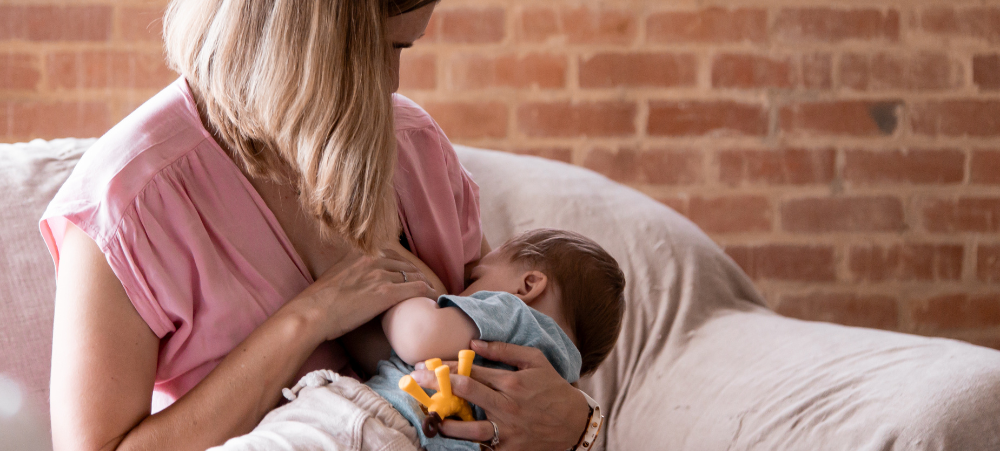Pregnancy is the most natural thing in the world and possibly the most miraculous. It is also different for every Mother-to-be. If you are thinking of starting a family, are already pregnant or are considering doing it all over again, it is important to keep abreast of the latest information and arm yourself with knowledge so you can enjoy the gestation and birth of your baby without debilitating nerves or unnecessary worry. Once armed with the facts, it is easier to trust yourself to know when is the right time to consult a doctor for medical advice should anything untoward arise.
Humans have been giving birth for hundreds of thousands of years. It was a fact that up until 100 years ago, one in ten women died in childbirth or were left physically weakened making it a risky business for expecting moms at a time when the only advice expecting moms had was handed down by their mothers.
Spoken knowledge shared between families over the centuries can suffer from a broken phone syndrome where the information can become fictious or be hard to unravel or rethink. Culture and religion play a big part in customs and cultural beliefs too, especially when it comes to protecting babies from bad spirits during and after pregnancy.
Today’s modern mum is blessed with medical knowledge, information, support and tools for your most easeful experience to help you care for your baby at home or find work life balance with your career and family lifestyle.
QUICK MYTHS DEBUNKED:

Myth: You can’t get pregnant the first time you have sex
Truth: It is possible to fall pregnant the first time you engage in intercourse. Sperm stays alive for 48 hours while ovulation takes place over a 5 day window. Women in their twenties are likely to fall pregnant more so than women in their thirties or forties.
Myth: You can’t get pregnant while on your period.
Truth: You can get pregnant at any time during menstruation. To avoid falling pregnant, use safe contraception such as a condom which also helps prevent the spread of sexually transmitted diseases which can affect the birth of your child. STDs. Try an ovulation app that tells you when to expect your period and which days most fertile.
Myth: You can’t fall pregnant while breastfeeding
Truth: You can fall pregnant while breastfeeding even if your period hasn’t started yet. There are safe contraception methods available to use during breastfeeding.
Myth: It’s not safe to have sex while pregnant
Not only is sperm safe, but there may be some benefits to having sex and contact with sperm before and during pregnancy: Sperm and vaginal sex can help induce labor when the time comes. Oxytocin, one of the key hormones involved in progressing labor, is released during sex, and orgasms mimic contractions.
Myth: Miscarriages are preventable
Truth: A miscarriage is most commonly the result of the fetus having genetic problems that cause the growth and development to stop and is something that is beyond the control of the mother. Certain uterine conditions or weak cervical tissues might increase the risk of miscarriage, such as poorly controlled diabetes or thyroid disorders such as hypothyroidism. While there is no way to make sure you won’t have a miscarriage, you can reduce your chances by avoiding cigarettes, alcohol, drugs, and injury to your belly.
Myth: You must wait 3 months before announcing your pregnancy.
Truth: Many women decide to delay announcing a pregnancy until at least 12 weeks in, due to concerns about the risk of complications or miscarriage during this time. In some cultural beliefs, your enemies may use this period to bewitch you or cast a curse on you to harm the baby. It is believed that prayer is enough to ward off any bad spirits.
A lot is happening during these first three months: The fertilised egg rapidly divides into layers of cells and implants in the wall of your womb where it carries on growing. These layers of cells become an embryo. Your first trimester begins on the first day of your last period and lasts until the end of week 12. It is during this first trimester that the foetus is most susceptible to damage from substances, like alcohol, drugs, certain medicines, and illnesses, like rubella (German measles) as both your body and your baby’s body are changing rapidly and complications more likely to occur.
Myth: Eating dairy and peanuts while pregnant can make your baby allergic to them.
Truth: It is safe to eat most foods while pregnant unless you are allergic to them. Do not limit your diet as this can be harmful to your growing fetus as you need all the nutrition you can get during this time. Foods to avoid during pregnancy due to the risk of harmful microbes are soft cheeses, pates, raw meat or fish, raw or soft-cooked eggs and soft-serve ice cream.

Myth: All women get stretch marks after pregnancy
Whether you get them or not really depends on your skin type, and how much collagen it stores. Women who have a higher chance of getting stretch marks include those who are obese, have bigger babies, experience high weight-gain or are younger when they are pregnant.
A stretch mark is a type of scar that develops when our skin stretches or shrinks quickly. Stretch marks will fade with time and you can speed up the process by massaging in a good moisturiser or skin oil to help promote new tissue growth and break down the bands of collagen that form in the underlying tissue leading to stretch marks.
Myth: Morning sickness only happens in the morning.
Truth: Morning sickness, including nausea and or vomiting during pregnancy is a result of changes in your hormones and while it is more common in the morning, it can occur at any time of day. It is most prevalent in the first trimester and for most women it will pass by the second trimester. Heads up though, it is unusual to experience morning sickness for the first time after week 10 of pregnancy, if it happens, consult your doctor.
Support your body during morning sickness by adding more potassium and magnesium, and vitamin B6 (pyridoxine) to your diet to reach the underlying cause. Drink plenty of water, try eating smaller, more regular meals and avoiding spicy or fatty foods. If nausea or vomiting occurs every time you eat or drink, you may have hyperemesis gravidarum and will need to consult a doctor.
Myth: Mothers instantly bond with their baby
Truth: Skin to skin contact between mum and baby soon after birth can help the bonding process, but not all women feel bonded to their baby straight away. It can take time and you shouldn’t try to rush or feel like you are doing anything wrong. As much as 70 percent of women experience the baby blues while about 5 percent of women will develop postpartum depression which will need medical intervention as it can develop into postpartum psychosis.
Baby blues appear within the first two to three days after delivery and may last for up to two weeks and include mood swings, crying spells, anxiety and difficulty sleeping. The dramatic drop in oestrogen and progesterone after you give birth may play a role. Other hormones produced by your thyroid gland also may drop sharply and make you feel tired, sluggish, and down. Give yourself time as the first two weeks after birth can be rocky for new mums as milk production and feeding schedules are being established.
Modern Tools for Modern Mums
When preparing for your babies arrival, embrace every challenge that comes your way. Not every pregnancy is going to be perfect however all mothers today enjoy the benefits of modern technology when it comes to the most important aspect of your pregnancy: Feeding and caring for your newborn following the birth and setting up your care routines from latching, let down and milk supply to protecting your breasts, breast pumping, storing and bottle warming, soothing and sterilisation.
The Philips Avent Baby+ App for pregnant and new mums supports you in tracking your baby’s development and allows you to save those special moments forever. Find all the support and advice you need when you download the app to your smartphone.
The World Health Organization recommends exclusive breastfeeding up to 6 months of age. Having the right tools to soothe and protect your breasts makes it easier to stay comfortable and continue breastfeeding for the recommended two years of breast feeding supplemented by the introduction of solids.
Enter a new era of expressing with Philips Avent Electric Breast Pump which offers a perfect balance of suction and nipple stimulation inspired by the natural way babies drink. The Philips Avent Electric breast pump or Manual breast pump keeps milk flow at an optimum and gently adapts to your nipple size and shape. When the power goes out, the electric breast pump can be used manually and is lightweight and convenient enough to go with you while on the move.

The Philips Nipple Shields Nipple shields are designed to help you breastfeed when you are experiencing nipple issues or latch on challenges. The ultra-thin butterfly shaped nipple shield allows breast contact for baby and helps continue bonding as you breastfeed.
The Philip Avent Natural baby bottle is designed for mums who want to combine breast and bottle feeding. The soft, breast-shaped teat encourages a natural latch and mimics the feel of a breast, making the switch between breast and bottle as smooth as possible for you and your baby. The Classic+ teat assists in the prevention of colic and is part of the Airflex venting system, air is vented into the bottle and away from the baby’s tummy. The ribbed texture prevents teat collapse and reduces feeding interruptions and discomfort.


Philips Avent Electric Bottle Warmer For days when you’re rushed off your feet, this Philips Avent baby bottle warmer warms your milk in just 3 minutes. The bottle warmer warms quickly and evenly by circulating the milk continuously as it warms, so hot spots are prevented. Easy to operate, it features a handy defrost setting and can also be used to warm baby food. It warms bottles in 3 minutes.
The Microwave Steam Steriliser is a great choice for fast, effective sterilizing at home or away. Up to 4 Philips Avent bottles or products can be sterilized at once, with 99.9% of germs killed in just 2 minutes.

Take your confidence with you with the professional care and support of Philips Avent South Africa for a healthy start and a healthy future for you and the whole family.
Stockists:
Baby City, Woolworths, www.dischem.co.za, Babies R Us or online at www.takealot.com or www.medhealthsup.com
Find the baby+ and pregnancy+ app’s FREE on the Google play or Apple App Store.
Facebook: @philipsaventsouthafrica
Instagram: philipsaventsa
Website: https://www.philips.co.za/c-m-mo/philips-avent
The range includes breastfeeding, bottle feeding, toddler feeding, baby monitors and newborn gifts.
Philips Avent products are all designed to fit your busy life and make it easier for you to make the best feeding choices.
- Affordable ways to maximise your nutrition during pregnancy - April 3, 2024
- How to exercise with baby in tow - November 15, 2023
- Emotional Health during pregnancy - August 17, 2023





